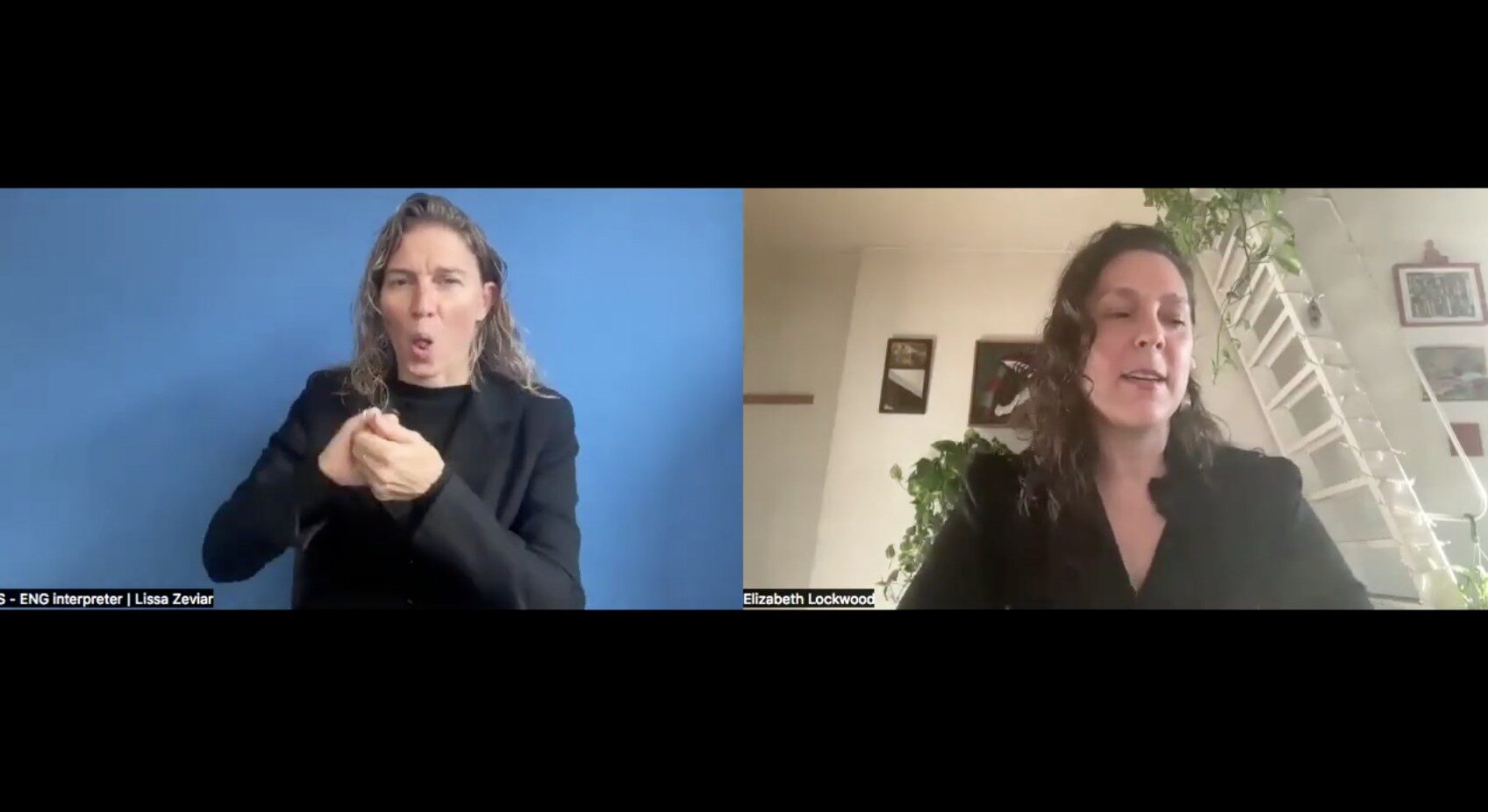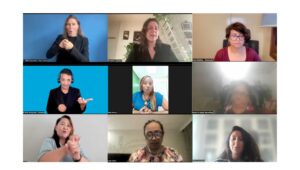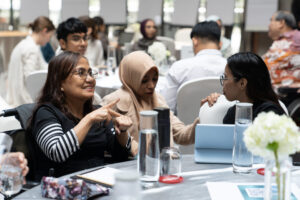Data is often described as the foundation of evidence-based policymaking but for many persons with disabilities, the data simply does not exist, is outdated, or not used. Across countries, where information is available, it frequently fails to capture the lived experiences of persons with disabilities, overlooking barriers to access education, employment, health care, and participation. Financing for disability data remains limited, and data systems are rarely designed in collaboration with organizations of persons with disabilities (OPDs), resulting in figures that neither reflect nor inform reality.
To address this gap and the solutions emerging from OPD-led efforts, IDA and CBM Global Disability Inclusion marked the United Nations 2025 World Statistics Day with a series of three webinars. The first in this series, “The Global Disability Summit: Advancing Data Processes,” brought disability advocates, data experts, and OPDs discuss how data can advance disability rights, and how the GDS mechanism strengthen that process.
It explored data as an indispensable resource for informed decision-making that can help highlight the needs of persons with disabilities that are often unrecognized and unmet. It underscored how crucial it is for OPDs to lead research to inform accessibility measures during data collection and ensure no one is left behind. The webinar also covered:
- Good practices of OPD-led disability data processes at the national level, including intersectional data efforts.
- GDS data commitments and how to utilize these commitments as a tool to advance data processes in the data value chain.
- The importance of data partnerships and a multistakeholder approach to strengthening disability data.
Data Ownership and Partnerships
Even though the CRPD and the 2030 Agenda explicitly call for the collection and disaggregation of data by disability, financing, prioritization, and inclusion in national data systems remain limited. Within the recorded commitments at GDS 2025, 86 specifically reference data collection and usage, half of which were made by governments, focusing on national data systems.
The presenters discussed the need to make data processes participatory with data about persons with disabilities to be led by and co-owned by OPDs. The discussion highlighted that the GDS provides not only a platform for commitments but also a process to strengthen inclusive data ecosystems. When data processes mirror the GDS principles led by OPDs, grounded in participation, and designed for accountability, they become a direct driver of rights realization.
Susana Stiglich from the World Federation of the Deaf, explained this connection and reminded participants that data cannot be inclusive if the process itself excludes persons with disabilities. Surveys and interviews, she noted, are often inaccessible, lacking sign language interpretation for deaf interviewers “Only through us leading the data process,” she shared, “can we see who is excluded, and make sure they are included.”
Her examples from Nigeria to Bolivia highlighted how deaf-led research produced evidence that directly shaped health and education policy. These findings were later translated into visual and accessible reports for all.

While governments remain central to official statistics, the discussion focused on the growing value of citizen data led by OPDs and civil society. Elizabeth Lockwood from CBM Global, noted that such data “complements traditional sources by capturing lived realities that official systems often miss.” She highlighted collaborative frameworks, such as the Collaborative on Citizen Data, recognized by the UN Statistical Commission and used in countries like Colombia, Canada, and Ghana as examples of how partnerships between IDA, CBM Global, and Fordham University’s Disability Data Initiative are turning underused datasets into powerful advocacy tools. “Data reflects reality only when it’s built on partnerships that include the expertise of OPDs,” she added.
Speakers shared regional and national experiences that showed how OPDs are translating data advocacy into action:

- In the Pacific, the Pacific Disability Forum partnered with national statistics offices, training enumerators and integrating disability questions into censuses and labor force surveys.
- In Kenya, the United Disabled Persons of Kenya built OPD capacity to collect and analyze data locally, contributing to national reports and shaping government commitments.
- In the Philippines, the Las Piñas Persons with Disability Federation, Inc. has led citizen data profiling since 2013. Their data now informs local government budgeting, education, and health programs.
Since persons with disabilities are diverse across gender, age, income, and geography, an intersectional approach throughout the data value chain is essential, a principle at the heart of the GDS. Dulamsuren Jigjid from the Culture Centre for the Deaf in Mongolia shared research on gender-based violence against women with disabilities. Traditional surveys, she noted, often miss the realities of deaf women due to inaccessibility and stigma. Using sign language, pictorial tools, and trauma-informed interviews, her team gathered richer qualitative data that revealed patterns of violence and led to awareness and support initiatives. Her message reflected the GDS vision: data goes beyond numbers, it must tell stories of survival, resilience, and rights.

Next in the Series: Advancing Inclusive Education
The second webinar in the series, “The Global Disability Summit: Advancing Inclusive Education for Learners with Disabilities,” will focus on transforming GDS 2025 commitments into concrete actions. Supported by IDDC, the GLAD Network Inclusive Education Working Group, and IDA, the session will bring together governments, OPDs, civil society, and partners to explore practical pathways for ensuring equitable, quality education for all learners with disabilities, including those in humanitarian settings.
Date: 29 October 2025
Time: 3:00–4:30 PM CET
Join the conversation and register here.


